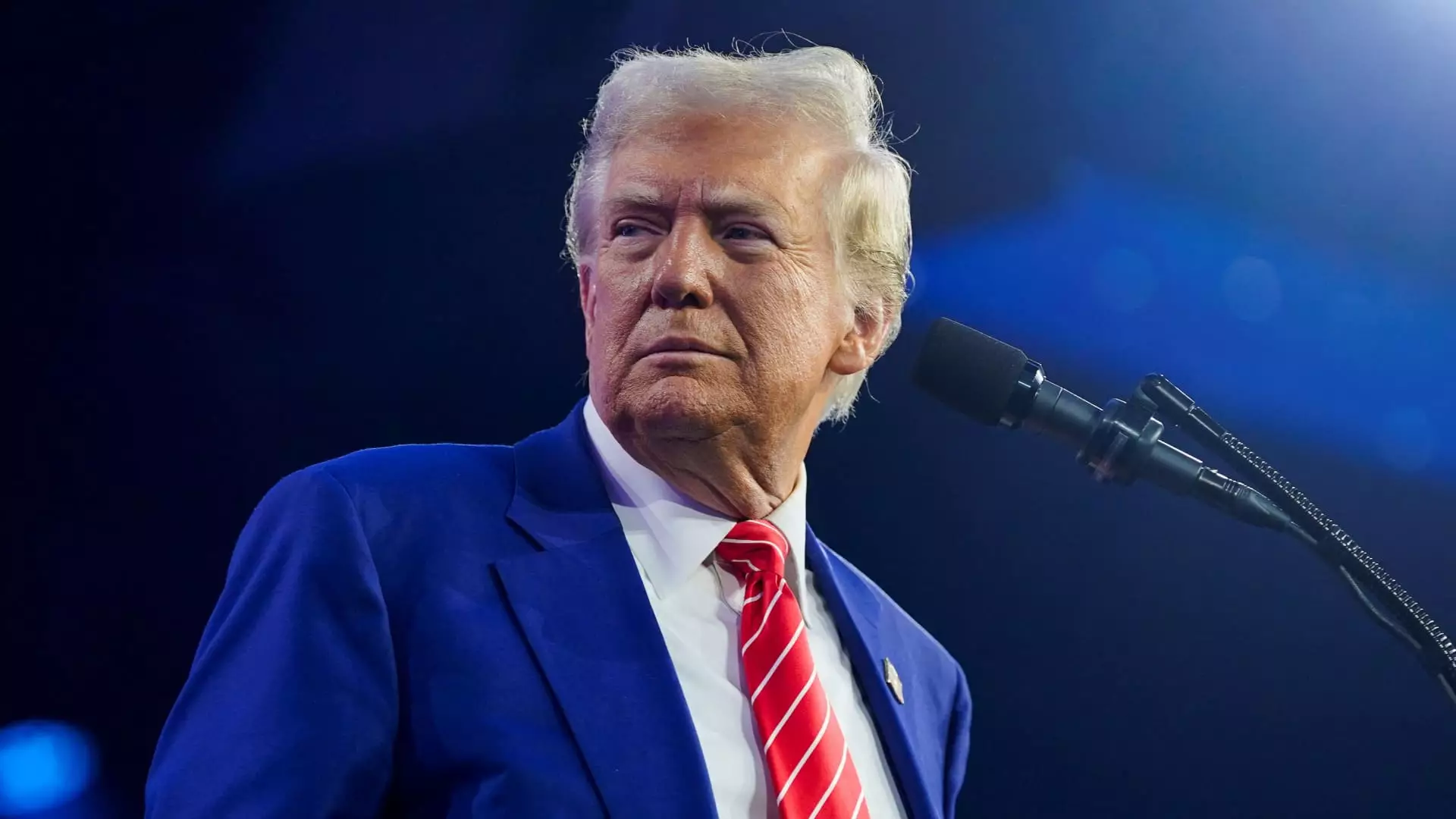The holiday season, typically seen as a time for unity and goodwill, recently took a surprising turn when President-elect Donald Trump used his social media platform to express his thoughts on Canada, Greenland, and the Panama Canal. Trump’s posts combined a mix of nostalgia, nationalism, and pointed barbs directed at various targets, sparking discussions about U.S. sovereignty and foreign control. This piece will explore the implications of Trump’s statements and the broader political context in which they sit.
One of the pivotal points in Trump’s message involved the Panama Canal, a crucial conduit for global trade that has been under Panamanian control since the late 1990s. Trump’s assertions that American soldiers bled for its construction over a century ago highlighted a sense of nostalgia for America’s past influence and authority. His claim that the United States injects “billions” into “repair” tasks — yet wields no say over it — reflects a broader sentiment that many Americans feel about the country’s current geopolitical standing. By calling out what he perceives as an inequitable situation, he taps into a narrative that positions the United States as a victim of global exploitation rather than a leader.
Trump’s tone shifted toward assertive nationalism as he criticized the prevailing agreements with Panama, suggesting that the United States has been unfairly treated. His call for potential control over the canal reignites historical discussions about colonialism and the idea of American exceptionalism, both of which can be polarizing topics. The current geopolitical climate has been marked by rising tensions, and Trump’s comments could be seen as an attempt to rally a base that believes in a stronger, more assertive U.S. foreign policy.
When Trump turned his attention to Canada, referring to Prime Minister Justin Trudeau as a “governor,” he stirred up the controversial topic of annexation. He hinted that including Canada as the 51st state would benefit Canadians through tax cuts and enhanced military protection. This notion is laden with historical resonance; discussions of statehood have always been steeped in contentious debates about sovereignty, identity, and autonomy. By framing annexation in economic terms, Trump attempts to appeal to voters who prioritize fiscal conservatism, masking deeper implications concerning Canadian sovereignty and national identity.
The current political climate in Canada, marked by rising nationalism and a distinct identity, may render such comments as not only politically imprudent but also an affront to Canadian sovereignty. The idea that Canada, a well-established nation itself, could somehow benefit from becoming part of the U.S. undermines the value of its independence. Trump’s tone and the notion of annexation can easily be perceived as patronizing, reinforcing an “us-versus-them” mentality that complicates diplomacy.
Trump’s remarks about Greenland, which is semi-autonomous but a territory of Denmark, evoke a sense of urgency regarding American territorial expansion—while simultaneously echoing the more colonial aspects of U.S. history. His statement suggesting that the U.S. is essential for Greenland’s security purposes opens the door to the uncomfortable reality of imperialism. The notion of needing access to Greenland for national security mirrors historical patterns of territorial acquisition, often justified under the guise of protection, but ultimately serving the interests of the occupying nation.
This can lead to international tensions, particularly with Denmark, which could view such rhetoric as an affront to its sovereignty over the territory. Trump’s previous interest in purchasing Greenland, famously rebuffed by the Danish government, now resurfaces with his recent proposal for a new ambassador, Ken Howery. Such statements can create diplomatic friction that hinders relationships, where a collaborative approach is necessary for addressing global challenges.
Donald Trump’s Christmas Day posts reveal a mindset that is steeped in nostalgia and imbued with a desire for renewed assertion of American power. By intertwining festive greetings with aggressive geopolitical aspirations, he elicits both fervent support and deep concern. The implications of such statements cannot be understated—while they may resonate with certain political bases, they simultaneously risk alienating allies and reviving historical grievances. As Trump continues to navigate his political future, the long-term consequences of such rhetoric on American diplomacy and international relations could be profound. The headlines may capture attention, but the underlying sentiments reflect enduring issues of power, identity, and sovereignty in a complex global landscape.



Leave a Reply